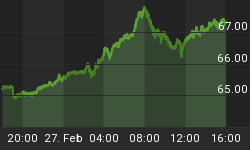As the prospect of Euro entry recedes, there has been a welcome improvement in the quality of the debate. There is a good case for Britain joining, but the Euro enthusiasts have been generally poor advocates, by seeking to avoid the vital issue of the exchange rate at entry.
Fundamentally Euro entry must be a political and not an economic issue. This is not only because the balance of long-term economic advantages is uncertain, but because there are many factors which are more important.
This is illustrated by the disparate performance of Eurozone economies. If a common currency was the key to prosperity they would all have prospered. Equally, the relative success of peripheral countries, such as Ireland and Spain, makes it hard to blame the Euro for the troubles at the centre.
(Will Cuppy, in his Decline and Fall of Practically Everybody, comments on a similar situation during the fourteen years when Nero was Emperor of Rome and the outlying provinces were said to have prospered. Cuppy simply remarks that they were further away. It would give too much importance to Brussels to assume that this argument could be extended to the European Union).
Many of the arguments frequently heard are of the type that businessmen favour when they discuss economics. There is, for example, the claim that inward investment would be encouraged by membership. There are, however, several problems with this.
One is that such investment would logically be driven by the prospect of profitability rather than membership and, if Britain joined at the wrong rate, the logical expectation would be that the current low profitability of manufacturing would be prolonged.
The second difficulty is that inward investment is not necessarily an advantage. If, for example, it is financed by foreign capital, it will tend to push up the exchange rate and, at least in the run up to entry, exacerbate the problem.
(It is an odd feature of public life that businessmen do not feel bound to claim expertise in the law, science or medicine unless they have duly studied these highly technical subjects. They seem to feel, however, than an understanding of economics arrives automatically with their appointment to the board and requires no effort of thought or study.)
The long-term economic case is a simple balance between the advantages that we should derive from lower transaction and information costs, leading to improved economies of scale, and the disadvantage that comes from a reduced ability to respond to shocks.
It is generally agreed that wages and prices rise more readily than they fall. If a fall in real wages and prices is needed, it is easier to achieve this by cutting the exchange rate than by pushing down nominal incomes and prices.
It is an open question whether the former outweighs the latter in the long-term. A reasonable person would therefore assume that the long-term balance of economic advantage is unlikely to be marked and that Euro entry will be less important than other factors, such as the overall economic management of the economy.
Politics should therefore be the long-term determinant, which is perhaps fortunate, as it seems clear that the supporters and opponents of entry generally select their economic claims to bolster their political prejudices.
Economics are, however, very important in the short-term. The economy will be subject to a major shock at the time of entry. It would therefore be extremely stupid if we joined without being sure that sterling was not overvalued. Because prices and wages rise in nominal terms more easily than they fall, this is not a symmetric problem. We need not seriously worry if sterling is undervalued at entry, only it if might be overvalued.
Despite its recent weakness, it is not rationally possible to claim that sterling is clearly undervalued today. First, sterling is more or less at the same level that proved too high when we were forced out of the ERM in 1992. Second, the return on manufacturing, which is hit by an overvalued exchange rate, is roughly half that of the service industries which are largely protected.
Common prudence demands that we should seek a further substantial depreciation from the current level before joining. Happily, by accident rather than design, there seems little danger that we will rush to join at the current rate.















